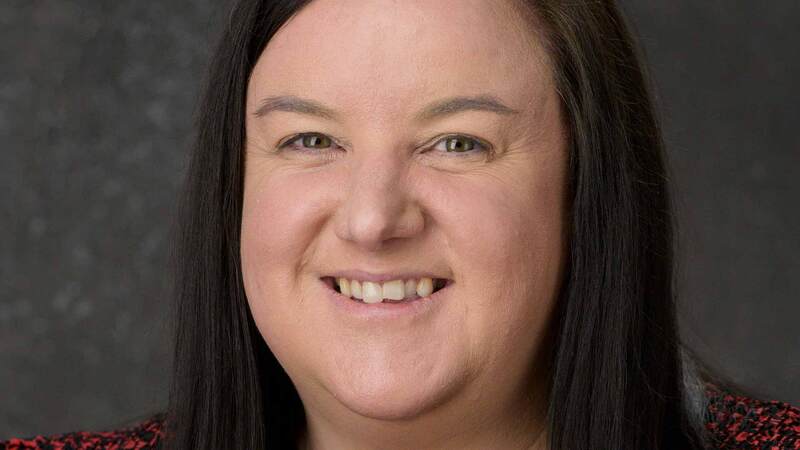You are viewing your 1 free article this month. Login to read more articles.
Publishers test hybrid working as Faber extends transition to April 2022
Publishers are settling into hybrid models of working this winter with many still reluctant to “mandate set days” while Faber has delayed a full return until April 2022.
Most publishing heads are keen to monitor the situation as winter descends and Covid cases in Europe and the UK remain high though most publishers are now open to staff at least on a voluntary basis.
Mary Cannam, Faber m.d., told The Bookseller that Faber is "in a transition period where people are testing coming back to the office - originally we had it running till December, but we've just extended it because Covid rates have gone up so much". Staff can currently come in to the office as they want, testing out their working pattern, with no compulsory requirement. However Cannam said it had been an "absolute joy" to see colleagues who had chosen to spend time in the office again. From April, depending on what happens with Covid, Faber plans to trial staff spending 40% of the time in the office on an agreed work pattern.
Simon & Schuster’s offices are currently open and staff who have chosen to do so are working on the premises for up to three days a week. “We are having ongoing conversations with staff to ensure that the return to work feels flexible and realistic, and we’re continuing to keep an eye on government guidelines and case numbers so we can take the necessary precautions as needed,” c.e.o. Ian Chapman confirmed.
Canongate is continuing to operate flexibly, with both their offices open and staff coming in, but capped at 50% capacity. Teams are allocating core days to be in the office for those who feel comfortable to attend. Commercial director Jenny Fry said: “With Covid rates still so high, we’re not mandating set days at this point, but it’s great to see so many staff very keen to be in and getting together with their teams again.”
Fellow indie press Profile has all full-time employees currently working a minimum of two days a week in the office in Clerkenwell.
Larger publishers have started welcoming employees back to the office on a part-time basis. Hachette’s hybrid working policy— which sees staff work three days in the office — has been in effect since 4th October, and there are “no plans to change it at the moment”.
Bonnier staff also returned to offices at the beginning of October, following a new flexible policy of two days in the office and up to three working remotely. A spokesperson said it will continue to operate its flexible hours policy which we introduced in 2018 and encourage staff to make use of this so that they can avoid travelling at peak times. The company's c.e.o. Perminder Mann told staff earlier this week that that it will continue to stay alert to developments and its number one priority is our people’s health and safety. In September 2020 Bonnier said it would allow employees to work up to three days a week from home once the pandemic eased.
John Athanasiou, director of people at HarperCollins, confirmed the company is in its third month of hybrid working, and is “very pleased with the way things are going”.
“Our teams are coming into our London, Glasgow, Manchester, Honley and Dublin offices for a minimum of two days a week, and we have found it to be both valuable and enjoyable to be able to have face-to-face interactions once again, alongside hybrid and virtual-only meetings,” he told The Bookseller.
The Penguin Random House office has been open since 19th July when the restrictions lifted for those who wish to attend, with attendance remaining voluntary, and the publisher is currently trialling hybrid working. It revealed in September that it will not have mandated office days introduced until at least the end of this year.
At Pan Macmillan, the Smithson offices in Clerkenwell are open five days a week to those who want to use them, and the company is trying out new weekly schedules to prepare a “return to the new normal”. In June it announced a policy of no set days in the office.
James Long, publishing operations director, said: “We have implemented a three-month trial of a revised working pattern across the week, for all divisions, which maintains focus on our core processes and key meetings whilst enabling individuals and teams to manage their time at home and in the office flexibly.
“We are supporting flexibility and the trial working pattern with core hours, to enable time free of meetings at the start, middle and end of the day; a top priority is to preserve the empowerment people have gained during the pandemic to structure their own time in conjunction with the needs of the business.”
Bloomsbury is continuing to operate its updated hybrid working policy, which will be implemented until the end of the year and reviewed. "We are fully aware that everyone has unique situations and as a company we continue to work to find a path that works for as many of employees as possible," the publisher said. "Many of people said that they were are uncertain about returning to the office, while others are eager to settle into office life. Considering the range of perspectives, we want to provide flexibility in our approach.
"With our vaccination mandate in place [a policy which deemed staff must be vaccinated before returning] we now welcome staff who are comfortable coming back to the office and have done from October 18th 2021. It is hybrid working with two days in the office and three days a week at home, but all staff are welcome five days a week if that is ideal for individual staff. Those people who are uncomfortable and have real concerns relating to Covid, will continue to work remotely and will not be required back into the office.
"We have not set a date for our full return. We ran an employee poll asking people how they felt about returning to work and these results helped the company thinking and have shaped the current working arrangements. Our decisions are first and foremost led by safety. In August, we delayed the opening due to the rates of Covid-19 and the Delta variant, and we continue to monitor those rates."
Younger and early to mid-career employees are more likely to struggle with their working from home set-up, which was revealed back in June by a survey conducted by Oxford-based branches at the Society of Young Publishers (SYP) and the National Union of Journalists (NUJ), with the Oxford Publishing Society (OPuS).
The Bookseller's research in March revealed frustration from many staffers over how home-working has exposed disparity between the wealth of some junior and senior members of staff. However, some respondents also reported appreciation for the home working set-up.

















